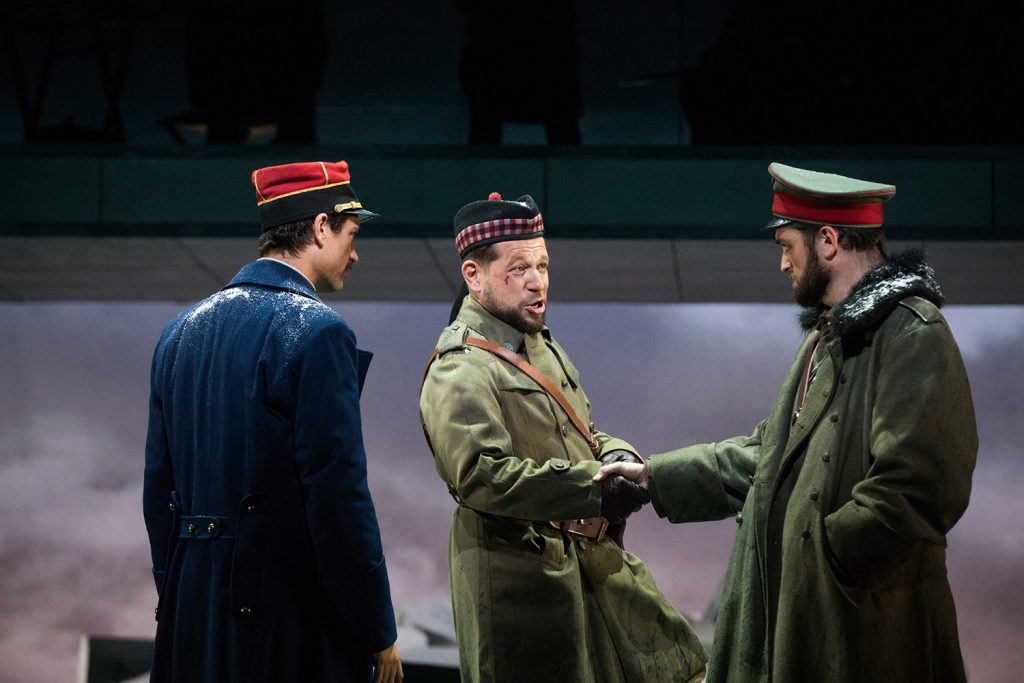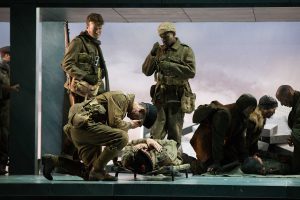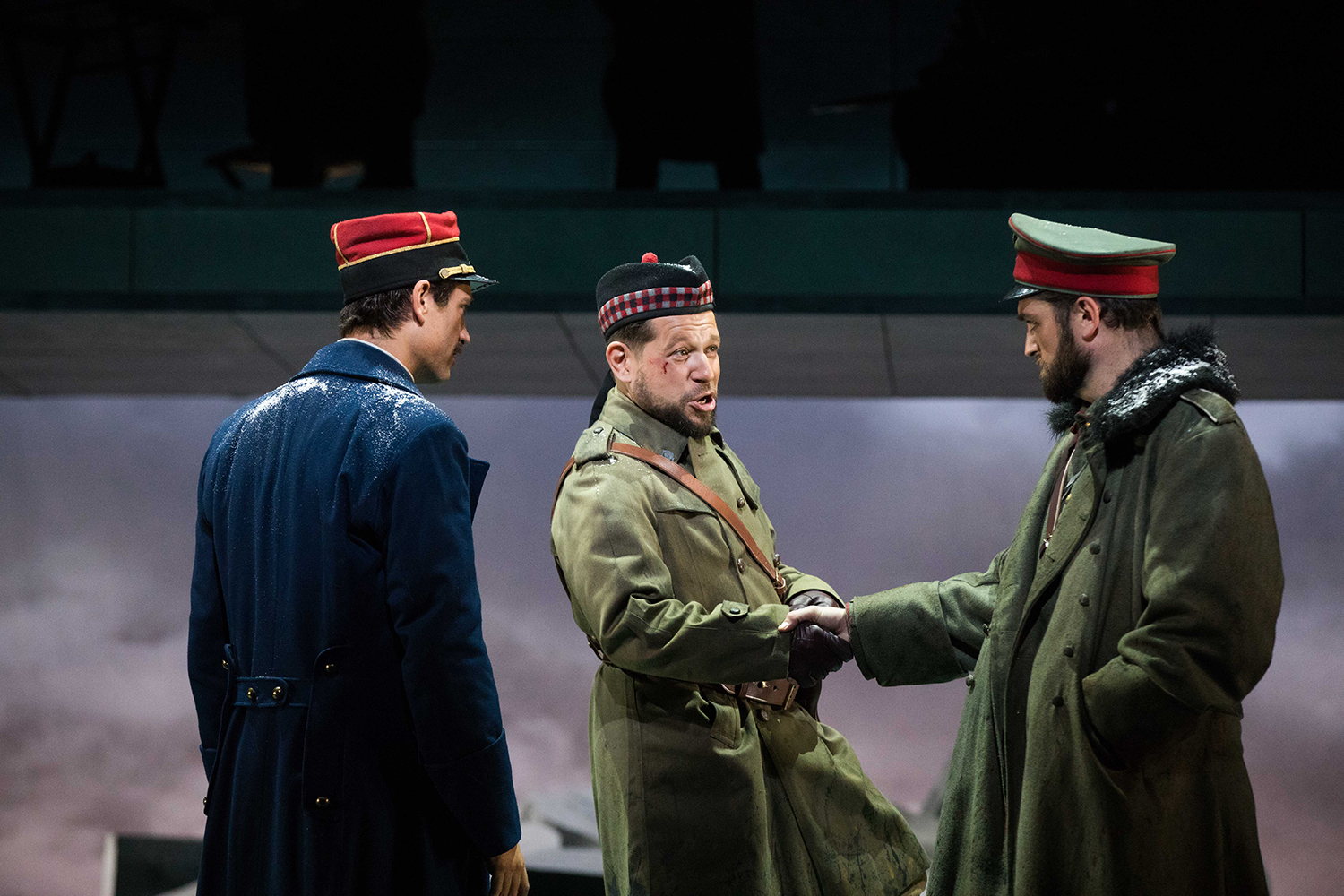
Violence is nothing new to the world of opera, but never before has it been portrayed on the grand stage of World War I. Last year the world marked the centenary of the end of that pointless conflict, which cost 40 million lives.
There were very few moments in the 4-year war that could be considered uplifting, the most famous being the Christmas Eve truce between the German invaders and the Allies. That is the setting for this 2011 opera, Silent Night, with music by Kevin Puts and libretto by Mark Campbell.
The reaction to the opera from a Long Centre audience could be characterised as muted enthusiasm. There was certainly a generous degree of applause for the sterling effort of the 25-member cast, but short of a thunderous reception.
I asked one long-time attendee of Austin Opera events for his opinion, which expresses how many must have felt. He characterised this as “the best production Austin Opera has ever staged. The meta-concept is great but the writing needs a little more love.” He described the storyline as too spread out, but the singing as gorgeous, especially the scene where a woman (tagging along with her beau to the trenches) sings to the troops of all three nationalities present: Scottish, French and German. Soprano Hailey Clarke shines in this role.

The music does indeed perfectly evoke both the violent warfare we seen near the opera’s opening, and the peaceful meeting of the troops who spontaneously declared a truce on Dec 24, 1914. If it were not based on reality, it would be unbelievable. One soldier who was there wrote home to England: “We are having the most extraordinary Christmas day imaginable.” Many operas strain credulity in their portrayal of human strife, but Silent Night is the real thing. The real question thus arises: is the story best portrayed on stage as an opera? Many present thought not, preferring a theatrical play as the most appropriate vehicle. It certainly worked as a 2015 movie, entitled Joyeux Noel, which this commission by the Minnesota Opera is based on.
Dissonant harmonies, especially evident in the overture to the second act, embody the tension of the soldiers in the trenches, who are presented to us on three vertical levels. The stark but stunning set design by Erhard Rom of Seattle enables the actors to show us each of the nationalities as a coherent whole, or, when they mix together towards the front of the stage, show themselves in No Man’s Land. This was the area between the trenches that no one could cross without getting killed, but on that Christmas Eve and part of Christmas Day in 1914 they exchanged jokes, chocolate and handshakes.
At once depressing and hopeful, Silent Night shows the human race at its worst and best. Both diehard pessimists and optimists will find enough here to satisfy them, but the majority may be touched by a feeling of the ambivalence that the soldiers themselves felt as they expressed a strategic ennui – a soul-destroying weariness with the war that in late 1914 had only just begun to destroy the civilisation they were fighting to save.
There will be one more performance of Silent Night on Feb. 3, 2019. It is directed by Tomer Zvulun, artistic director of The Atlanta Opera.
Visit www.austinopera.org
